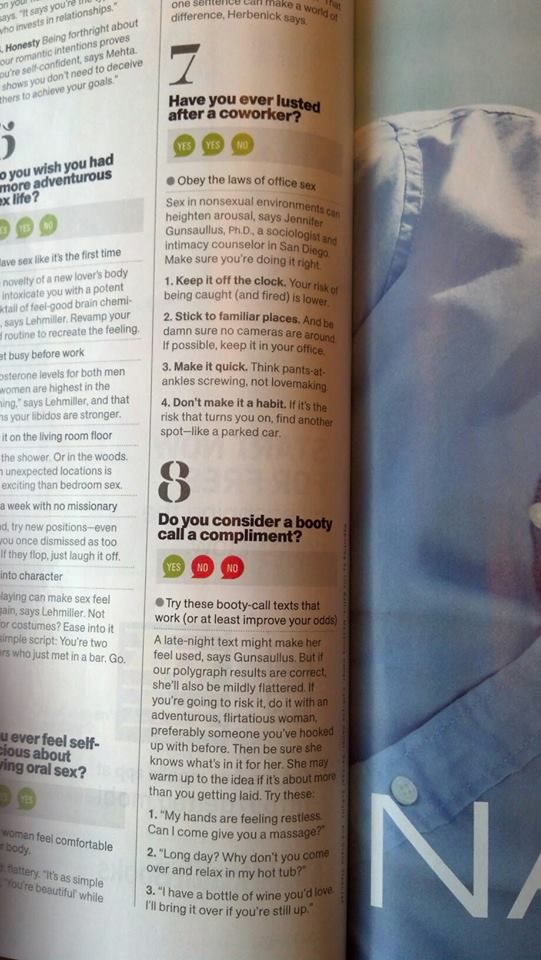Sex in the Office & Booty Calls?
/
I was interviewed for the June issue of Men's Health Magazine about the topics of sex in the office and booty calls. These are not topics that I generally discuss in much depth, but I appreciated the opportunity to offer my two cents (which is often more about responsibility and respect, than titillation). My main perspective on sex in the office is to not be foolish about it, in terms of too much risk-taking, irritating your co-workers, or leaving a mess behind (no one likes to find someone else's pubic hairs on their desk in the morning). It is a fantasy for some and can be quite exciting because of its taboo and passionate nature. If this is the case, also consider seeking out other taboo settings (e.g., nature) where the risk of losing respect or your job are not on the line.
Regarding booty calls or the more relevant booty texts, I say be respectful. Remember that regardless of how much you say you only want sex, that is still another human being on the other end, with emotions, insecurities, and needs for connection (just like you). Sometimes booty texts are flattering and exciting, but in the long run they can lead to disappointment and feeling used. So appreciate and honor the person you're hooking up with and make sure their needs are being met too. And don't show up sloppy drunk - that's not fun sex for anyone!
~Dr. Jenn Gunsaullus, San Diego, CA -- Sociologist, Sexuality Speaker, and Sexologist














































